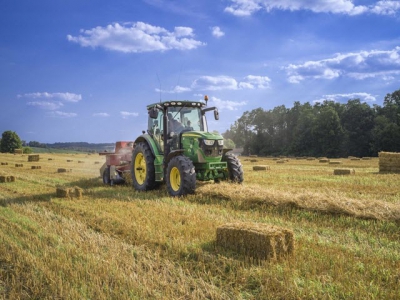Vietnams potential to drive agri-food recovery ranks second highest in the region

As a key pillar of the national economy, Vietnam’s agri-food sector remained resilient during the COVID-19 pandemic and has great potential to drive economic recovery, ranking second in the region. However, a report by Oxford Economics states that while the sector can be a significant driver of Vietnam’s post-COVID-19 economic recovery, supply and demand risks, fiscal policy measures, and a drawn-out pandemic could disrupt this trajectory.
The agri-food sector could play a major role in Vietnam's recovery
Commissioned by the Food Industry Asia (FIA) to better understand the challenges and economic impact of the agri-food sector faced in 2020, The Economic Impact of the Agri-Food Sector in Southeast Asia report highlighted that the agri-food sector’s role is pivotal in driving Vietnam’s economic recovery, creating employment, and putting food on the table at stable prices.
According to the report’s Economic Recovery Matrix, Vietnam placed second across 10 countries when it comes to the sector’s expected economic recovery, with a score of 6.6 out of 10, coming in just behind Singapore. This is in part due to Vietnam having contained the COVID-19 virus relatively early and minimised the economic fallout. The sector had remained resilient during the COVID-19 pandemic, seeing a 4 per cent growth in 2020, or a $3.7 billion increase in GDP contribution.
Pre-pandemic, Vietnam’s agri-food sector demonstrated strong contributions to the national economy. Findings from the report show that in 2019, Vietnam’s agri-food sector made a GDP contribution of $86.4 billion. The sector is also responsible for half of the entire workforce with 27.5 million jobs, making it the single most critical source of employment in the economy. The sector also contributed a total of $13.2 billion in tax revenue.
This was largely driven by Vietnam’s dominant agricultural industry, which contributes over $55.3 billion in GDP, which is nearly two-thirds of the entire sector. However, the agri-food industry saw greater diversification over the years as both food and beverage manufacturing and distribution saw double-digit growth between 2015 and 2019.
Commenting on the findings, Mary Tarnowka, executive director of AmCham Vietnam, said that while the local agri-food sector has demonstrated great resilience against the challenges of the pandemic, further developments on the COVID-19 virus, supply and demand risks, and fiscal risks still have great potential in disrupting Vietnam’s growth.
“The effects of the pandemic have been felt widely and deeply across all sectors, including agri-food, but as a significant pillar of our national economy, the sector demonstrated its resilience by achieving robust growth throughout last year. The crisis can be an opportunity for Vietnam’s agri-food sector to drive our economy to greater heights, promoting food security and sustainable growth, while continuing to support over half of our country’s entire workforce," said Tarnowka.
“We should continue the diversification of the sector that we’ve seen pre-pandemic, where we deepen our capabilities in higher value-adding roles in ag-tech, manufacturing, and services,” she added.
FIA's executive director, Matt Kovac, shared the same sentiment on a need to understand the current and future risk landscape to future-proof Vietnam’s agri-food sector.
Kovac said, “The report highlighted a range of substantial short-term and long-term challenges facing the agri-food sector in Vietnam, and that it remains crucial for policymakers to recognise and work around these risks, given the scale of the sector’s contribution to Vietnam’s jobs and GDP. With strong headwinds projected for 2021, it is imperative for the Vietnamese government to remain mindful of this with any policy that could impact the industry.”
Echoing this, James Lambert, director of Economic Consulting Asia for Oxford Economics said, “As Vietnam looks to continue its trajectory of being one of the fastest growing economies in the world, it is important that policymakers provide the most conducive conditions for the agri-food industry to grow and thrive, and that any fiscal policy implemented is carefully planned, designed, and communicated. That will allow the industry to continue to provide the economic benefits it has delivered over recent decades.”
Lambert notes that fiscal adjustments can include sales tax hikes, which could potentially dent demand and household wellbeing, given that more than a third of household spending in Vietnam is accounted for by food and non-alcoholic beverages.
Related news
 Price of "black gold" reversed due to difficulties in its exports
Price of "black gold" reversed due to difficulties in its exports After increasing in the first quarter of 2021, the price of Vietnamese pepper has decreased since the beginning of April.
 Di An city to improve the quality of urban agriculture
Di An city to improve the quality of urban agriculture With the aim of make more efficient use of land resources, improve production values and incomes of farmers
 In search of measures for elevation of farm produce brand-name positions
In search of measures for elevation of farm produce brand-name positions Dau Tieng district People’s Committee has just summed its One Commune One Product (OCOP) 2020 and proposed orientation and tasks for 2021